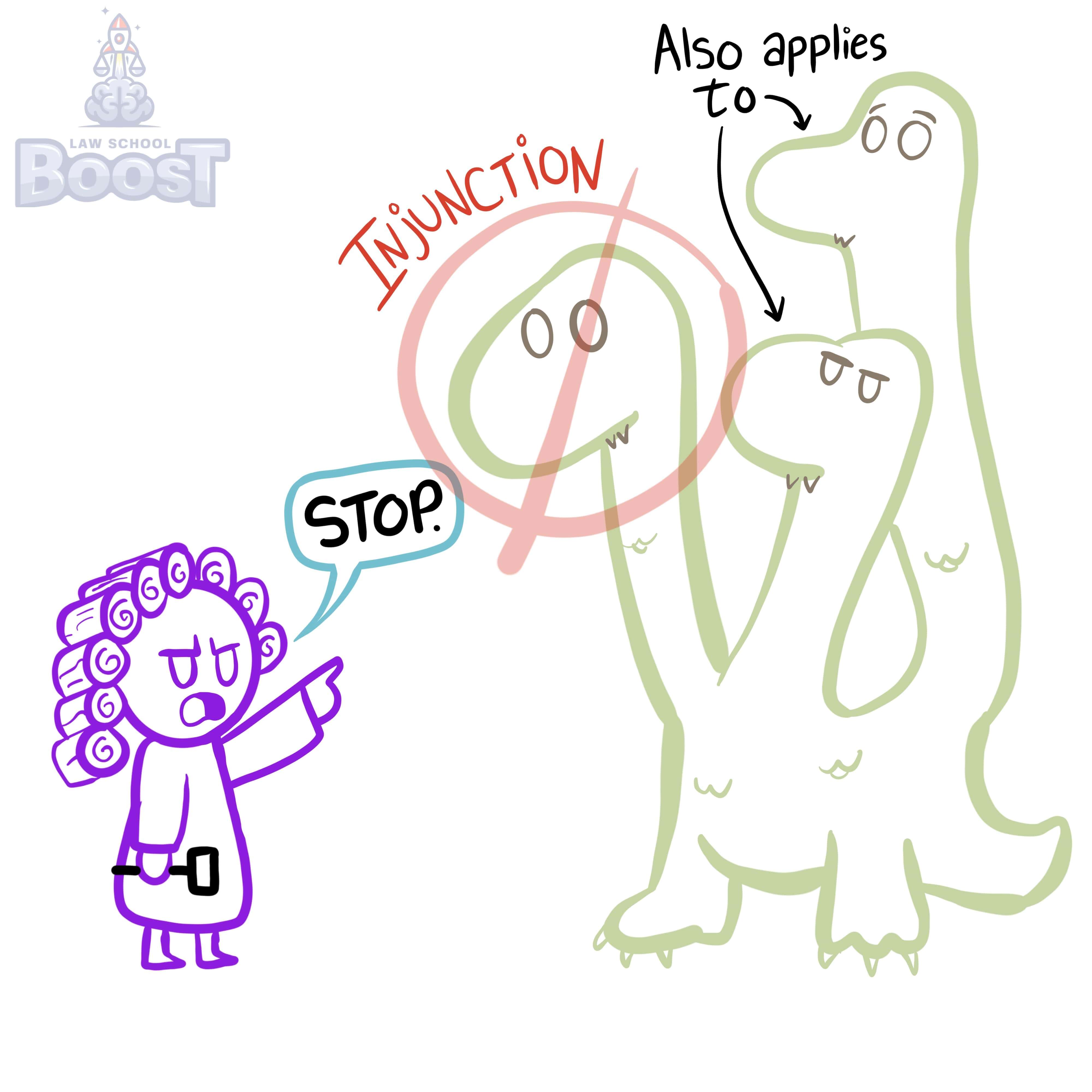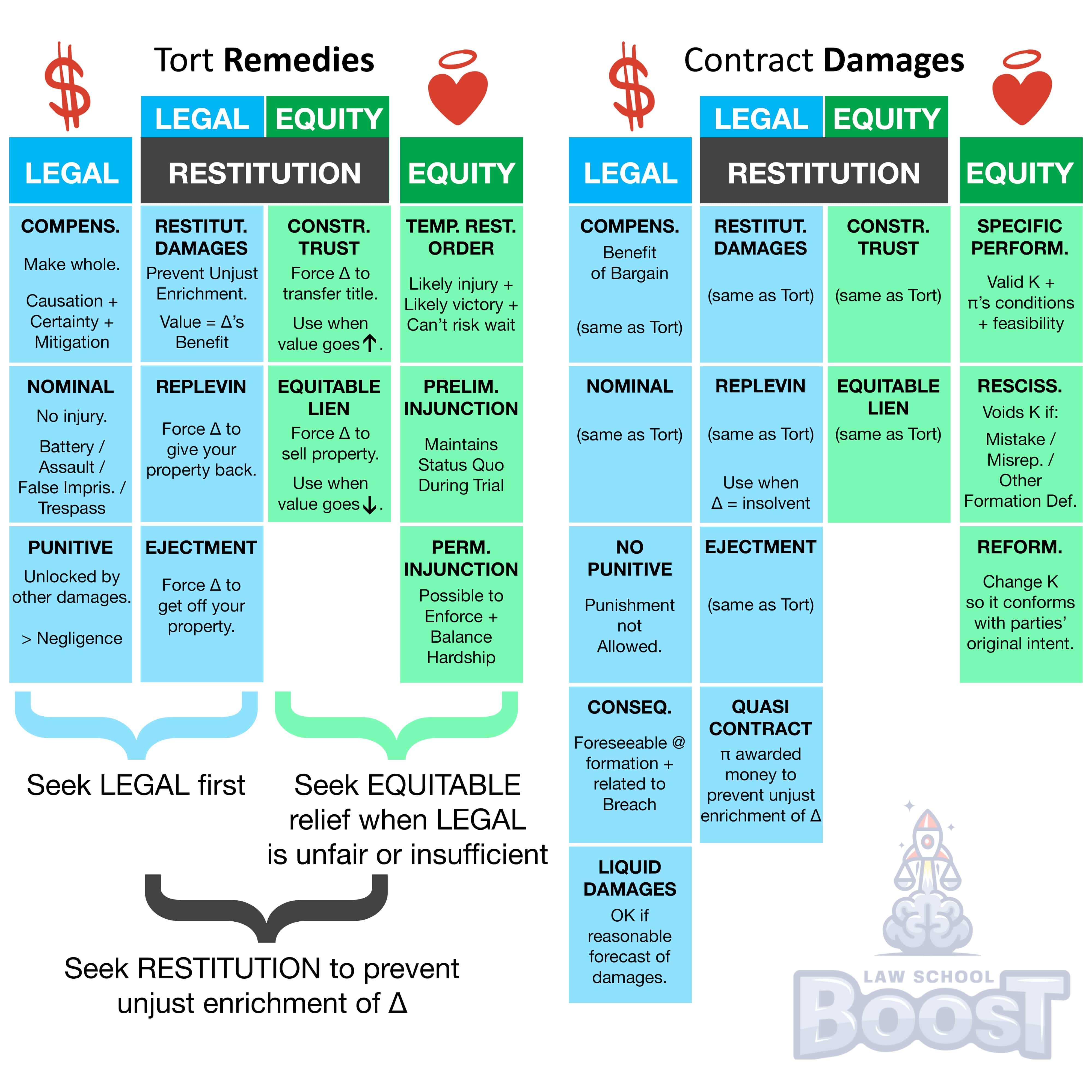🏥
Remedies • Tort - Equitable Remedies
REM#034
Legal Definition
The parties to the case are bound by the injunction, as are employees and agents acting with notice, and others acting in concert with notice.
Plain English Explanation
Obviously when a court issues an injunction, the people directly involved in the case have to follow it. However, if someone works for or represents one of these people and they know about the order, they have to follow it too. Lastly, anyone else who knows about the order and is working together with the people in the case must also obey it. The purpose of this rule is to make sure that the court's order is respected and followed by everyone who is aware of it. This rule applies when a court gives a specific order and wants to ensure that not just the main parties, but also those connected to them, follow it. The rule exists to maintain the authority and effectiveness of the court's decisions.
Hypothetical
Hypo 1: Bob gets a court order that says he can't go near Sam's house because he's been causing trouble there. Bob tells his friend, who works for him, about the court order. Despite knowing this, the friend goes to Sam's house to play loud music on Bob's behalf. Result: The friend is also bound by the court order because he's an employee of Bob and knew about the injunction. So, he's in trouble for not following the court's order.
Hypo 2: Bob is again restricted from going near Sam's house. This time, Bob's cousin, who knew about the court order, decides to throw eggs at Sam's house after Bob suggests it would be a good way to annoy Sam. Result: Bob's cousin is bound by the court order because he acted "in concert with" Bob, following Bob's suggestion. So, he's in trouble for not obeying the court's order.
Hypo 3: Bob has a court order not to go near Sam's house. One day, a delivery guy, who has no idea about the court order, delivers a package to Sam's house from Bob's company. Result: The delivery guy is not bound by the court order because he didn't know about it and wasn't acting on Bob's personal behalf. So, he's not in trouble.
Hypo 2: Bob is again restricted from going near Sam's house. This time, Bob's cousin, who knew about the court order, decides to throw eggs at Sam's house after Bob suggests it would be a good way to annoy Sam. Result: Bob's cousin is bound by the court order because he acted "in concert with" Bob, following Bob's suggestion. So, he's in trouble for not obeying the court's order.
Hypo 3: Bob has a court order not to go near Sam's house. One day, a delivery guy, who has no idea about the court order, delivers a package to Sam's house from Bob's company. Result: The delivery guy is not bound by the court order because he didn't know about it and wasn't acting on Bob's personal behalf. So, he's not in trouble.
Visual Aids


Related Concepts
What are equitable remedies in tort?
What are the defenses to a suit seeking injunctive relief?
What is a preliminary injunction and how is it issued?
What is a temporary restraining order ("TRO") and what is required to get one?
What is contempt?
What is the collateral bar rule?
When assessing a permanent injunction, how do courts balance hardships?
When assessing defenses to a lawsuit seeking injunctive relief, when are unclean hands applicable?
When assessing defenses to a lawsuit seeking injunctive relief, when is impossibility applicable?
When assessing defenses to a lawsuit seeking injunctive relief, when is laches applicable?
When deciding on a permanent injunction, when may ejectment be inadequate?
When deciding on applying a permanent injunction, when may money damages be inadequate?
When may replevin be inadequate as a remedy and, instead, a court will opt for a permanent injunction?
When will a court issue a permanent injunction?


